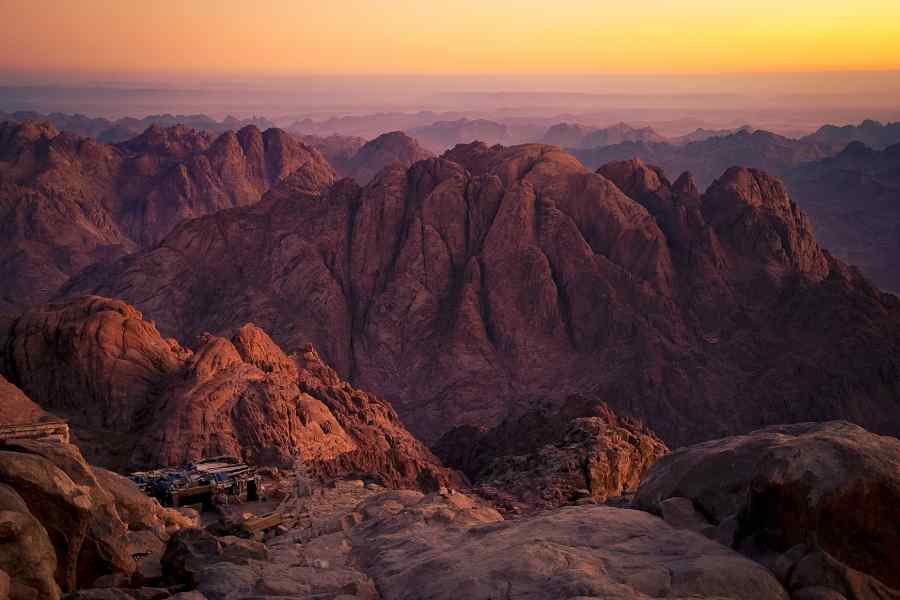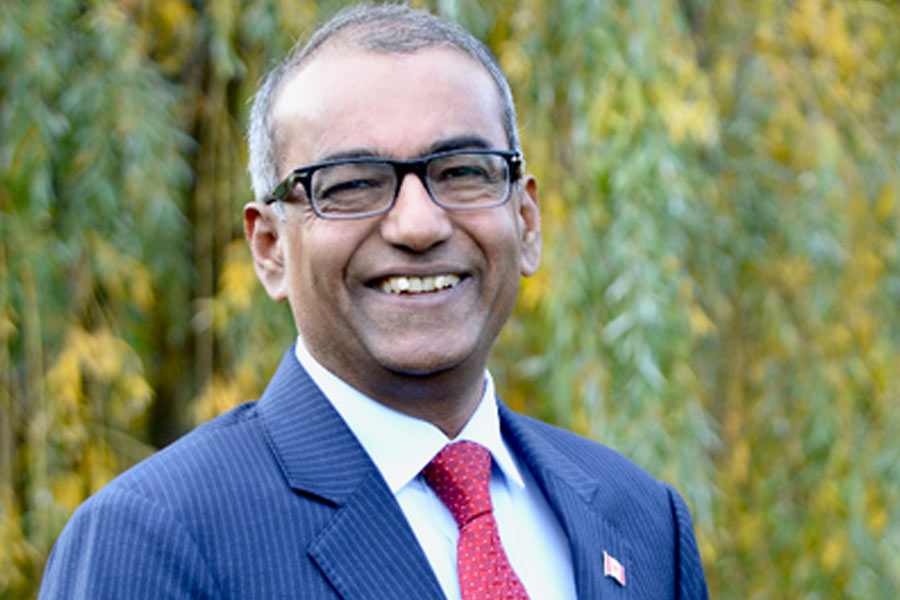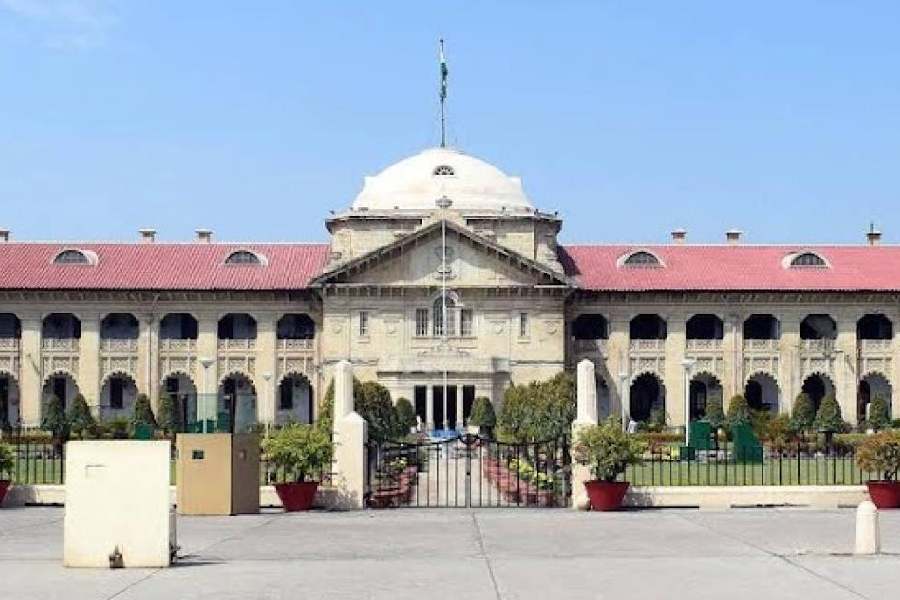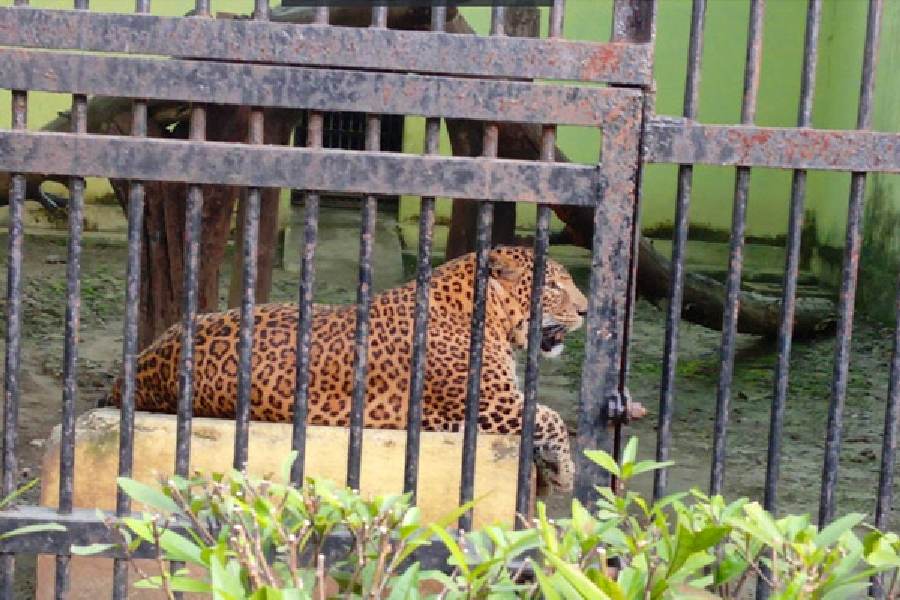The caravan of five Toyota Land Cruisers raced across Saudi Arabia’s rocky desert, weaving onto a highway so new it was not on the map. At the cleft of sea that splits the kingdom from Egypt, they stopped on a barren beach. Fifteen tourists spilled out and gathered around Joel Richardson, a Kansas preacher.
As the sun dipped below the mountains of the Sinai Peninsula — hazy across the water in Egypt — Richardson asked the group to imagine standing on the other side at the moment of the biblical Exodus, fleeing from Pharaoh’s army with Moses, when the sea ripped in half.
He opened a Bible, donned his glasses and began to recite. “Who among the gods is like you, oh Lord?” he said. “Who is like you, majestic in holiness, awesome in glory, working wonders?”
These were not the visitors Saudi officials expected when they opened the country’s borders to leisure tourists in 2019, seeking to diversify the oil-dependent economy and present a new face to the world. First would come the adventurers, they thought — seasoned travellers searching for an unusual destination — and then the luxury market, with yacht owners flocking to resorts that the government is building on the Red Sea coast. No one in the conservative Islamic kingdom had planned for the Christians.
Yet Christians of many stripes — including Baptists, Mennonites and others who call themselves “children of God” — were among the first people to use the new Saudi tourist visas. Since then, they have grown steadily in numbers, drawn by word of mouth and viral YouTube videos arguing that Saudi Arabia, not Egypt, is the site of Mount Sinai, the peak where Jewish and Christian Scriptures describe God revealing the Ten Commandments.
Biblical archaeologists typically place Mount Sinai in Egypt, although there are other theories. A minority points to writings by the Roman historian Flavius Josephus suggesting that Jebel al-Lawz, a mountain in northwestern Saudi Arabia, is the site. There is also local lore that Moses spent time in the area.
Mainstream biblical scholars vigorously dispute this. But that does little to dampen the pilgrims’ enthusiasm as they embark on what is, for many of them, the trip of a lifetime, hunting for evidence that they think could prove the truth of the Exodus.
“It makes something tangible that you have believed in your whole life,” said Kris Gibson, 53, the Idaho bookkeeper on Richardson’s trip, who had never travelled beyond the US and Mexico before she boarded a plane in February to Saudi Arabia.
“When you think of Saudi Arabia from the States, you certainly don’t think of this,” said Gibson, strolling through a canyon filled with palm trees. “I’m just absolutely shocked at how beautiful it is,” she said. “Because, you know, in my head I’m thinking, nothing but sand.”
Like most similar journeys, Richardson’s tour — costing $5,199 per person — covered an area that Prince Mohammed chose for a science fiction-inspired mega-project, Neom, where he plans to build a linear metropolis composed entirely of two parallel skyscrapers.
On one of their last days in the kingdom, Richardson took the tourists to a Bedouin camp, where their hosts milked a camel, pouring the frothy liquid from a silver bowl into cups for them to drink. Inside a tent lined with burgundy carpets, they dipped dates into fresh goat butter and feasted on meat and rice piled on platters the size of chandeliers. “This is such a privilege, that we get to be at the forefront of all this,” he said, praising the cultural exchange.
That pleasure alone is not what brings him to the kingdom; nor is profit from the tours, which are costly in a country where tourism is still new. Like many of the tourists, he is driven by an urge to uncover proof of the Bible’s stories, to walk where he believes they happened. The scenes of the Exodus fill him with awe. Finding signs that it occurred “would be the single greatest sacred biblical step forward in the past couple of thousand years”, he said.
“In my opinion,” he said, “all the evidence is sitting right out there in the desert.”
New York Times News Service











